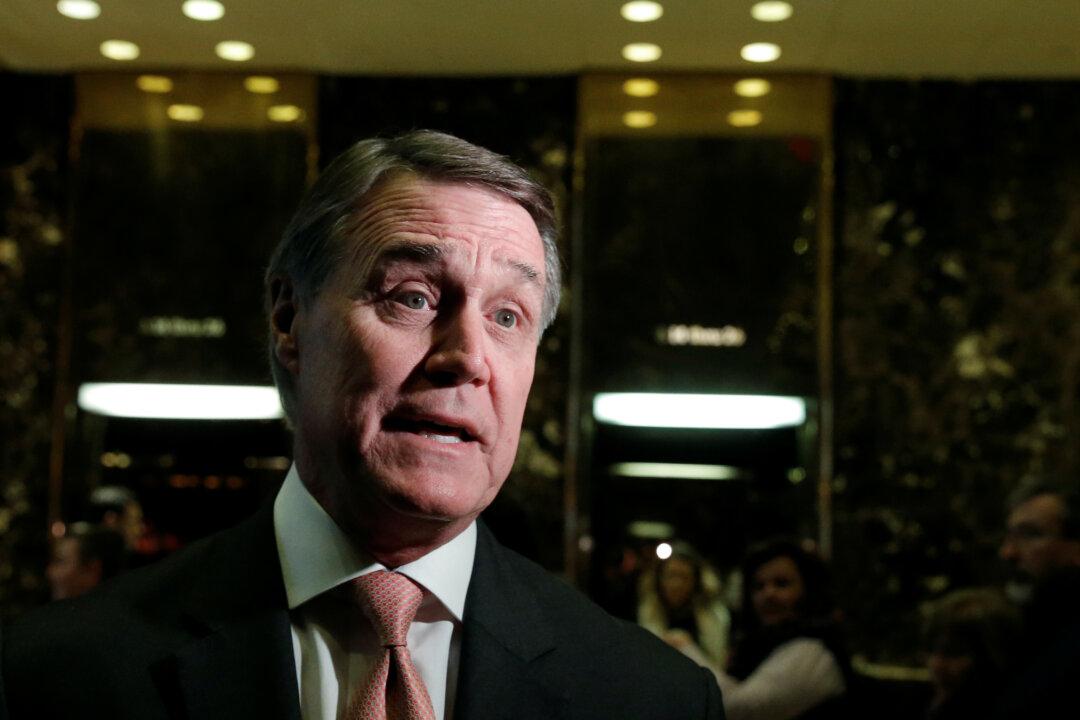WASHINGTON—Republican senators David Perdue of Georgia and Rand Paul of Kentucky admonished Congress Wednesday to confront America’s exploding national debt and budget deficits now to avoid the national disaster that will follow if they don’t.
“The national debt topped $22 trillion this year. We’re heading for an absolute catastrophe if we don’t address the real causes of future increases to our national debt, which are Social Security, Medicare, and interest on the debt itself,” Perdue said Wednesday.





